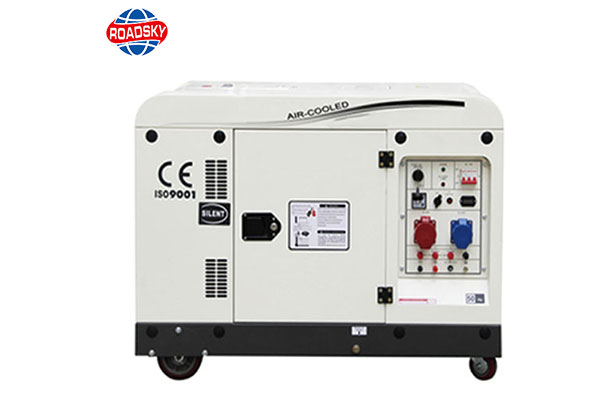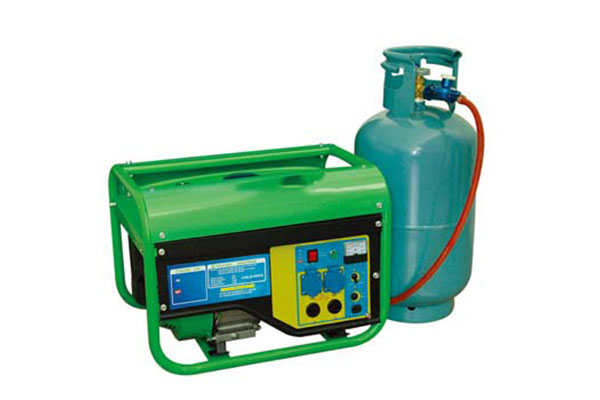Diesel Generator vs. Gas Generator: How to Choose?
In the realm of backup power solutions, diesel and gas generators stand as two stalwart options, each with its own set of advantages and considerations. Whether you’re looking to power your home during outages or seeking a reliable energy source for your business, making the choice between diesel and gas generators is crucial. To help you navigate this decision-making process, let’s delve into the nuances of both options and explore how to choose the one that best fits your needs.
Understanding the Basics
Diesel Generators:

Diesel generators operate by burning diesel fuel to produce electrical energy. They are renowned for their robustness and efficiency, making them a popular choice for commercial and industrial applications. Diesel generators are often preferred for their longevity, as diesel engines typically have a longer lifespan compared to gas engines.
Gas Generators:
Gas generators, on the other hand, utilize natural gas or propane as fuel sources to generate electricity. These generators are prized for their cleaner emissions and lower operational costs, especially in regions where natural gas is readily available. Gas generators are often favored for residential use and in locations where noise and emissions regulations are stringent.

Key Factors to Consider
| Power Requirements | Assess your power needs accurately. Diesel generators are well-suited for heavy-duty applications that demand continuous and high-output power, such as industrial facilities or data centers. Gas generators, while capable of providing substantial power, are typically more suitable for residential or light commercial use. |
| Fuel Availability and Cost | Consider the availability and cost of fuel in your area. Diesel fuel tends to have a higher energy density than natural gas, providing more power per gallon. However, fluctuations in diesel prices and accessibility may impact long-term operating costs. Conversely, natural gas is often more readily available and can offer cost savings over time. |
| Environmental Impact | Evaluate the environmental implications of each option. Diesel generators emit higher levels of pollutants, including nitrogen oxides and particulate matter, compared to gas generators. If environmental concerns are a priority, gas generators may be the more sustainable choice due to their cleaner emissions profile. |
| Maintenance Requirements | Factor in the maintenance needs of each type of generator. Diesel generators typically require more frequent maintenance, including oil changes and filter replacements, due to the nature of diesel engines. Gas generators, while generally requiring less maintenance, still necessitate regular servicing to ensure optimal performance and longevity. |
| Initial Cost and Longevity | Consider your budget constraints and long-term investment goals. Diesel generators often have a higher initial purchase cost than gas generators, but their durability and longevity may result in lower overall lifecycle costs. Gas generators may offer upfront savings but could incur higher operating expenses over time, depending on fuel prices and usage patterns. |
Making the Decision
When it comes to choosing between a diesel generator and a gas generator, there is no one-size-fits-all solution. The optimal choice depends on your specific requirements, preferences, and circumstances. Here are some guiding principles to help you make an informed decision:
- Assess Your Power Needs: Determine the precise power requirements for your application, considering both continuous and peak loads.
- Evaluate Fuel Options: Research the availability, cost, and environmental impact of diesel fuel and natural gas in your area.
- Consider Long-Term Costs: Calculate the total cost of ownership over the expected lifespan of the generator, factoring in fuel expenses, maintenance costs, and potential downtime.
- Prioritize Reliability: Choose a generator from a reputable manufacturer known for quality, reliability, and after-sales support.
By carefully weighing these factors and consulting with industry experts, you can confidently select the generator that aligns with your objectives and delivers reliable power when you need it most.
Conclusion
The choice between a diesel generator and a gas generator boils down to a thorough analysis of your power requirements, fuel preferences, environmental considerations, and budgetary constraints. Whether you opt for the robustness of a diesel generator or the efficiency of a gas generator, investing in a reliable backup power solution is essential for ensuring uninterrupted operations and peace of mind in any situation.

